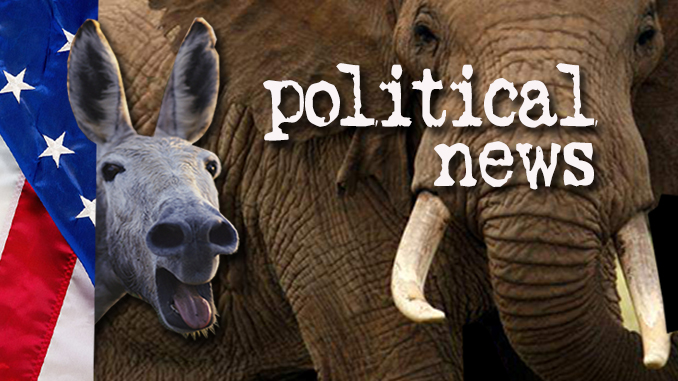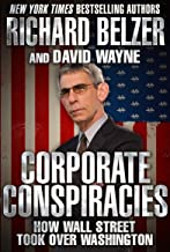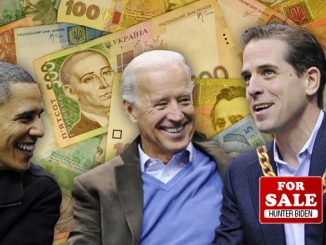
By Donald Jeffries
Republicans, who have generally defended consolidation of corporate power through mergers and buyouts, are finally decrying what Sen. Marco Rubio calls the “monopoly power” of Big Tech companies. Rubio told Fox News, “We are now living in a country where four or five companies, unelected, unaccountable, have the monopoly power to decide, we’re gonna wipe people out, we’re going to erase them, from any digital platform, whether it’s selling things and the like.”
Referencing what some are recognizing as the fulfillment of George Orwell’s invention of “unpersons” in 1984, Rubio went on to say, “This is also an opportunity for [the left] to go and put pressure on social media companies to literally not just erase the president but erase everybody.” Rubio was responding to Twitter’s heavy-handed purge of Michael Flynn, Sidney Powell, Lin Wood, and Donald Trump himself, who has apparently been banned for life by Jack Dorsey’s Twitter platform. Following suit, Twitter’s new competitor, Parler, was thrown off of Amazon’s web hosting service. Parler’s user numbers had grown by leaps and bounds in the immediate aftermath of the Capitol incident, as it provided a new forum for alternative, especially conservative, voices.
Twitter’s standards are as inconsistent as everything else connected to the world of identity politics. #KillTrump, for instance, remains up on Twitter, and comedian Kathy Griffin could triumphantly repost herself holding a decapitated head of Mr. Trump, which had derailed her career the first time around, without the social media platform censoring her. Twitter justified its lifetime ban of President Trump “due to the risk of further incitement of violence.”
The latest round of furious cancel culture resulted from Mr. Trump’s speech to a crowd that seemed to number in the hundreds of thousands, on Jan. 6 in Washington, D.C. Despite continuous claims in the mainstream media, and by politicians in both parties, Trump never “incited” any kind of violence. He specifically told the crowd to march “peacefully and patriotically” to the U.S. Capitol, which they had every right to do. The silencing of Trump was initially because of his repeated tweets about vote fraud. In fact, Twitter has attempted to ban any references to vote fraud in the 2020 election.
It wasn’t just Big Tech that activated their social justice warrior card following the “storming” of the Capitol building. Simon & Schuster cancelled the contract for a book written by up-and-coming Missouri Republican Sen. Josh Hawley, in light of his speaking out about electoral fraud. Hawley’s book, ironically, was an indictment of the Big Tech monopolies. In contrast, the book In Defense of Looting was published with little protest last summer, in the wake of the Black Lives Matter protests. There have been reports of Trump supporters being fired from their jobs, for merely being at the rally (and nowhere near the Capitol). Tucker Carlson interviewed recording artist Ariel Pink, who was in the crowd listening to Trump speak, but then went back to his hotel room to take a nap. Obviously not a part of the crowd that entered the Capitol, Pink nevertheless had his record contract cancelled. Harvard University students started a petition to revoke the diplomas of celebrated graduates like Ted Cruz and Kayleigh McEnany, along with any other attendees of the rally who could be identified as Harvard alumni.
While YouTube has banned virtually all of the alternative podcasters who had sizable audiences, Raz Simone, the self-proclaimed “warlord” of the autonomous nation of CHAZ and/or CHOP, which took over a portion of Seattle last year while authorities stood completely down, remains on social media. YouTube has no problem keeping up his violent, racist rap song “Shoot at Everyone.” Celebrities like actor Robert DeNiro have expressed a desire to physically assault Donald Trump, and the reaction from the same media that is calling the Capitol incident “another Pearl Harbor” has been to sympathetically nod in robotic agreement.
Anti-trust legislation that was utilized against the likes of Standard Oil over a century ago could and should be applied to Twitter, Facebook, YouTube, and other large social media platforms. Simply allowing Parler to exist, for example, as a viable competitor to Twitter would be a step in the right direction. The power of Google and Amazon is unfathomable. The Justice Department began an investigation of Big Tech’s monopolistic practices in 2019. “Without the discipline of meaningful market-based competition, digital platforms may act in ways

that are not responsive to consumer demands,” Department of Justice (DOJ) antitrust head Makan Delrahim said at the time. The DOJ’s investigation resulted in an October 2020 lawsuit. It was the first such case against Big Tech since the lawsuit against Microsoft in 1998. That lawsuit did nothing to rein in the monopoly power of Bill Gates’s companies. Now that the Trump administration has ceded power to Joe Biden, this lawsuit’s status becomes less clear.
Donald Jeffries is a highly respected author and researcher whose work on the JFK, RFK and MLK assassinations and other high crimes of the Deep State has been read by millions of people across the world. Jeffries is also the author of three books currently being sold by the AFP Online Store.






